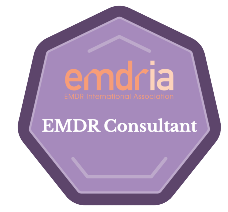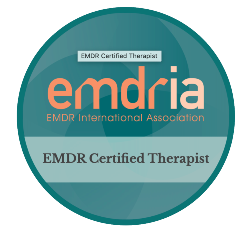Two Ways to Shift Perception and Feel Happier
At any given moment, people are taking in sensory information from their environment, making sense of this information, and incorporating their interpretation into the narrative of their lives.
Each second of the day, the brain is bombarded with sensory information, though most of this information never makes it into our awareness. In reality, the brain organ is actually filtering the information, so only a fraction of raw sensory data from our environment will reach conscious awareness. What does this mean for us? This means we are interpreting our environment based on a very small amount of the information actually available to us in our environment.
Our unique brains are wired in an equally unique way to filter and sort information, leading to our unique perceptions, attitudes, and responses to our environment.
The main take home message is this – perception is not necessarily reality. How our brains are wired to notice and filter the information is how we go from objective observers to subjective individuals with differing thoughts, opinions, values, and attitudes.
This is easily noticeable when we consider the difference between an optimist and a pessimist. The optimist and pessimist can look at the same situation and have vastly different interpretations. While the pessimist may see failure and weakness, the optimist may see opportunities for growth and relatable vulnerability.
The good news is, thanks to advancements in neuropsychology, we are beginning to learn more about how to re-wire our brains. With a bit of effort, and active awareness of what we pay attention to, we can take a more active role in the process of filtering and making meaning of the sensory data available to us in our environment. Try this…..
- Begin a Gratefulness Journal.
If you’re not naturally “wired” to look for the silver lining in any situation, you may need some practice to help your brain along. To start, try one month of writing down 3 things that you’re grateful for each day. The trick is being creative on those days where things just seemed lousy. This will help your brain practice looking for the good, even when the bad things are initially more noticeable.
Tech savvy? Try a gratitude journal on your smart phone! One example is the Gratitude Journal App, at getgrattitude.co.
- Create mindful awareness of your unhelpful “mental filters.”
We tend to filter information based on our belief systems. Belief systems are complicated and include strongly held beliefs about the SELF (values, identity), and the world around us (how things “should” be). As higher order beings, we are able to engage in self-reflection and understand that our beliefs and thoughts do not necessarily need to define us or how we behave. This process of noticing and evaluating one’s belief systems and the mental filters that arise from them can be enlightening, yet challenging work. Psychotherapy can be helpful and invaluable for people who are interested and open to this process.
Click here for more information on Anxiety Treatment.
Citations:
[1] Arntz, W., Chasse, B., & Vicente, M. (2005). What the bleep do we know!?: Discovering the endless possibilities for altering your everyday reality. Deerfield Beach, Fla: Health Communications.
~Kerri Sterrett, MA, LPC is a licensed professional counselor in the state of Colorado and a contributing blogger.[/fusion_builder_column][/fusion_builder_row][/fusion_builder_container]





